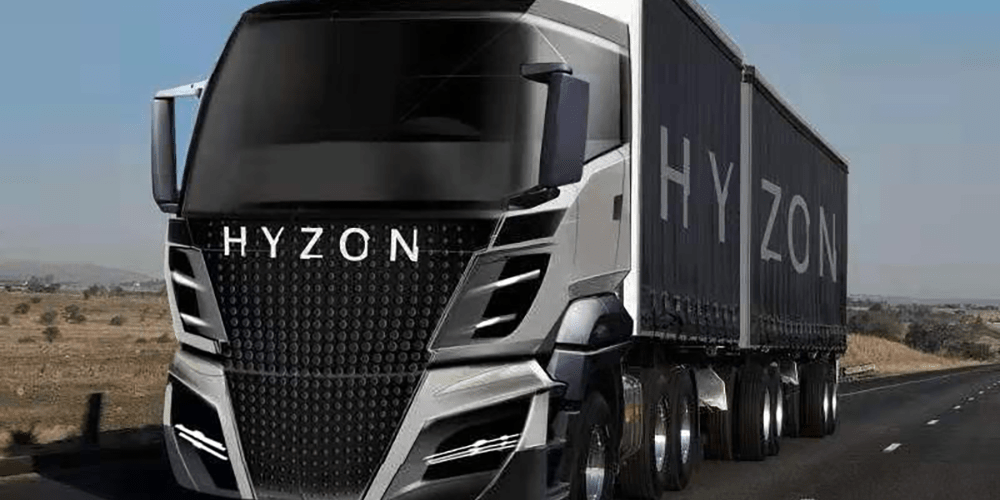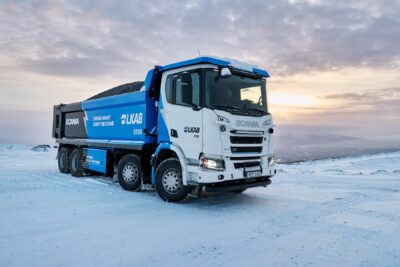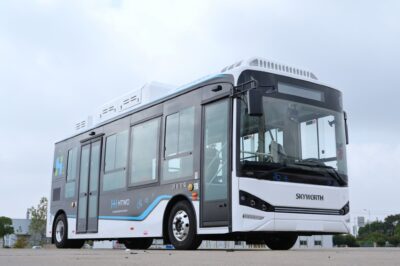Hyzon announces lighter & cheaper H2 storage system
Hyzon Motors has developed a new hydrogen storage system for its H2 trucks to reduce weight, manufacturing costs and component requirements. Hyzon also plans to license the proprietary development to other commercial vehicle companies.
The new patent-pending technology integrates lightweight composite materials into the system’s metal frame and has the potential to reduce the overall weight of the hydrogen storage system by 43 per cent, the cost by 52 per cent and the number of manufacturing components required by 75 per cent – based on the smallest system with five hydrogen tanks, according to a Hyzon statement. Hyzon does not elaborate on the exact composition of the composite materials and the design in the release.
This system is mounted behind the cab and can be expanded to seven tanks thanks to its modular design. For long-haul trucks, Hyzon has developed a system that can accommodate ten tanks behind the cab. Both the large and small systems can be combined with a third storage system where two more tanks are mounted on the side of the chassis. This is intended to increase the range of the tractor without having to downsize the trailer.
The new technology has already been installed in the first trucks in Europe and is to be used in all Hyzon vehicles from the fourth quarter of 2021. According to the report, the system will not only be assembled at the US plant in Rochester, but also at the European site in Groningen. The development has also been a transatlantic collaboration, Hyzon emphasises.
“Hyzon is committed to continuous innovation in our zero-emission commercial vehicles, down to every detail, enabling our customers to make the switch to hydrogen from diesel without compromise,” says Craig Knight, CEO of Hyzon. “After years of research and development alongside our partners, this new storage technology optimizes the building cost of our hydrogen fuel cell-powered commercial vehicles, while reducing overall weight and increasing mileage capabilities. This makes Hyzon vehicles an even more attractive alternative to heavy vehicles powered by combustion engines.”
In addition, the new system is to be licensed to other commercial vehicle companies. This is apparently to be done via the Hyzon Zero Carbon Alliance, a global consortium initiated by Hyzon. However, details on this and possible interested parties are not yet known.





0 Comments